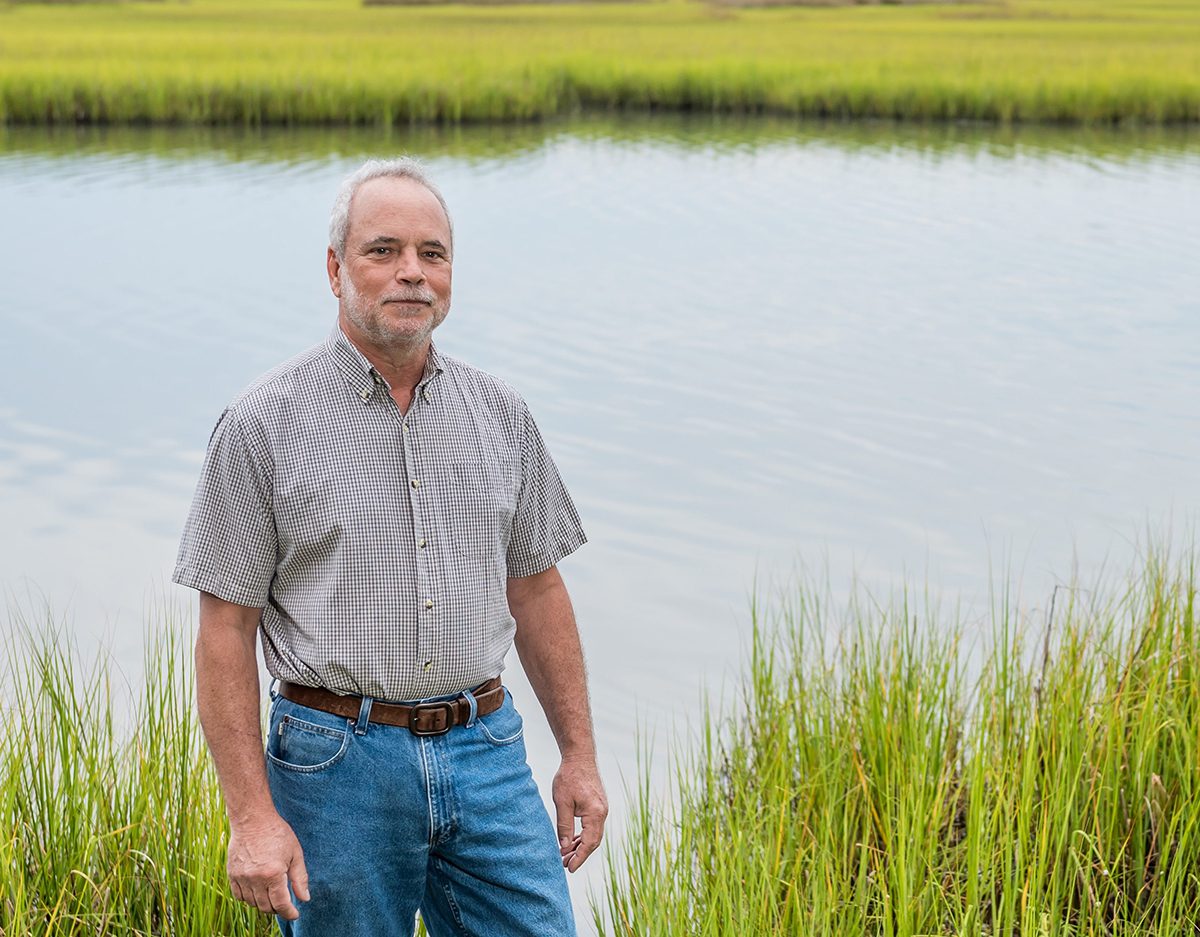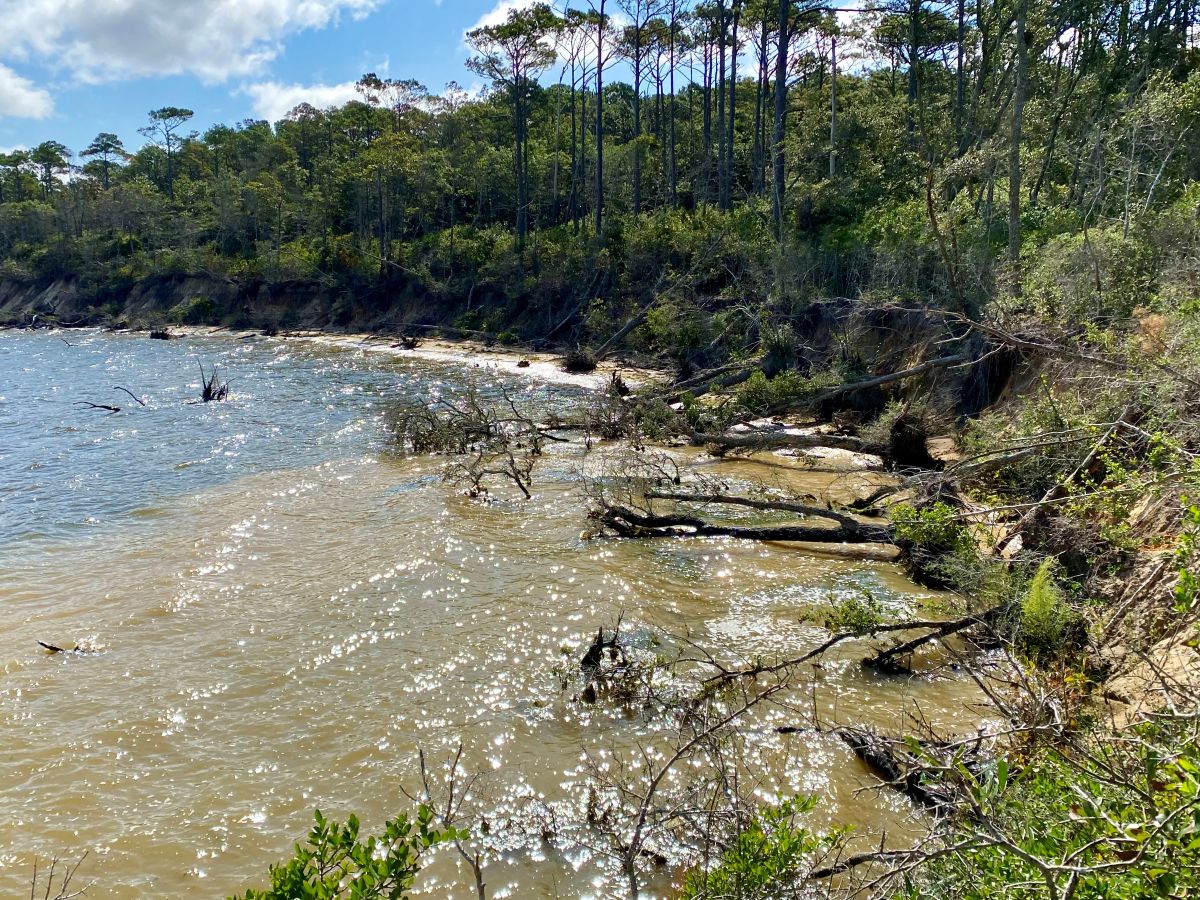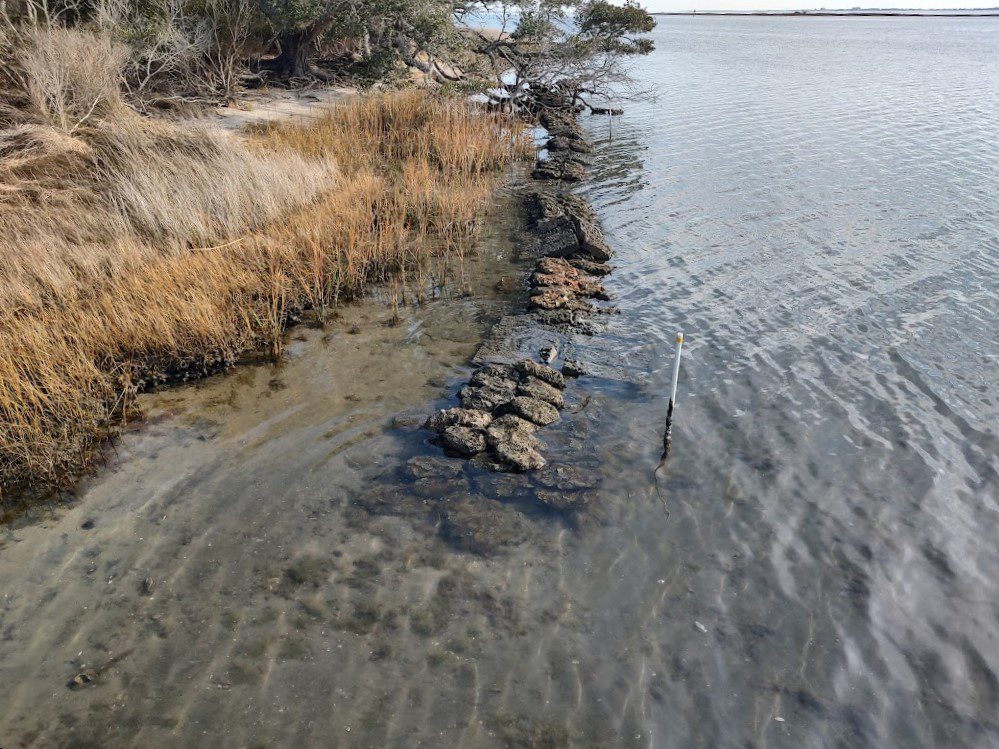
Todd Miller, founder and executive director of the North Carolina Coastal Federation, which publishes Coastal Review, announced Monday that he is stepping down and that the nonprofit organization’s board of directors had appointed Dr. Braxton Davis, director of the North Carolina Division of Coastal Management, to step into the role early next year.
The Coastal Federation is a nonprofit with 16,000 supporters working for a healthier North Carolina coast. Miller founded the organization in 1982. He is a founding board member with Restore America’s Estuaries, and serves on the Board of Visitors for the University of North Carolina Institute for the Environment and as a board member on the Leadership Committee for the Albemarle-Pamlico National Estuary Partnership.
Supporter Spotlight
“With a mix of emotions, I find myself ready to set a new course in the remarkable voyage I’ve shared with the Federation since 1982. The time has come for me to pass the helm of this incredible organization to the next generation of leaders who will steer our mission to new horizons in the years ahead,” Miller said Monday in a message to staff, members and supporters.

The organization’s board approved the selection of Davis in a unanimous vote during a special meeting Dec. 4. The change in leadership is set for Feb. 1, but Miller stressed that he will continue to remain engaged in the Coastal Federation’s work, “and not going out to pasture.”
Miller is to serve as Davis’ senior adviser and as an “ambassador” for the Coastal Federation.
Miller said the transition will allow him to focus on the work he does best – championing the group’s causes and advancing its mission.
“I requested this change and wanted to do it while it was not a necessity or an unpredictable crisis situation — and we’ll be a stronger organization as a result,” Miller told Coastal Review.
Supporter Spotlight
‘Exceptionally well-qualified’
Miller described Davis as “exceptionally well-qualified to lead the Federation into a new era of innovation and impact. His extensive experience and unwavering commitment to coastal management, coupled with a proven track record at state and national levels, make him the ideal individual to navigate the challenges and opportunities that lie ahead.”
Davis, who has been Division of Coastal Management director since 2011, told Coastal Review last week that after 12 years with division, he was ready for the next phase of his career and excited about the opportunity to join the Coastal Federation.
He described how the Coastal Federation had been a longstanding partner with the state’s coastal program and that he had worked directly with many of the organization’s staff over the years.
“I’ve always been impressed with the expertise and energy they bring to their work, and their engagement with diverse stakeholders. The organization has grown significantly over the years and is leading a wide range of projects, so I look forward to transitioning into my new role in early 2024 and hope to hit the ground running in support of the great work they are doing,” Davis said.
Davis, whose hometown is Lynchburg, Virginia, earned a bachelor’s in environmental science from the University of Virginia, a master’s in biological sciences from Florida International University, and a doctorate in marine affairs from the University of Rhode Island. He has experience in coastal and marine research and policy analysis and was the lead principal investigator for a number of grant-funded coastal resources, management and policy research projects. He has provided congressional briefings and testimony on climate and coastal resilience issues.
Davis said that in his new role he plans to visit with folks across the North Carolina coast during the coming year to explore new partnership opportunities, including opportunities to build on the partnerships the Coastal Federation has had over the years with the North Carolina Department of Environmental Quality and the Division of Coastal Management.
Same issues, slightly different perspective
The transition from a state regulatory agency to a coastal advocacy organization is natural for Davis, he told Coastal Review.
“I’ve been doing this since the very beginning, since I was in graduate school, and a lot of it was policy, policy advocacy and research and then coastal management in South Carolina where I was focused on the nonregulatory side,” he said.
Davis said that after a dozen years at the division, “honestly, it just feels like a really good progression for me. I really feel like it’s going to be a fun, fresh start to look at the same issues in a slightly different way, work on them in a slightly different way.”
Davis said his background can help the Coastal Federation achieve its goals in restoration, land acquisition and other work, “and certainly there’s some advocacy as well in my background that will be helpful for that. I think because I understand where the challenges lie and what can work as cooperative solutions that people can buy into, I think that’s going to be helpful on that front.”
Davis said the best part of his state job has been the people that he works with every day — staff at the Division of Coastal Management, leaders at the Department of Environmental Quality, members of the Coastal Resources Commission — people who he described as positive, solution-oriented, and hardworking in their efforts to help people navigate federal and state rules, resolve conflicts and protect coastal resources. He said the “great team” at the division has earned a reputation for friendly and professional public service.
“It can be a tough job at times, but that’s because the issues and projects we work on are complex and important to our economy, environment, and culture. It has been a rewarding career and honestly a privilege to be a part of for all these years,” Davis said.
50 years of coastal management
The pending leadership changes at both the state agency and the nonprofit come as North Carolina’s Coastal Area Management Act, the law that created the Division of Coastal Management, turns 50.
“Most people know of CAMA through the regulatory or permitting program. As CAMA celebrates its 50th anniversary, as with any regulatory program, its achievements can be difficult to measure because you’re trying to understand what would have happened if the regulations were not in place. CAMA requires us to seek a balance between economic growth, development, environmental protection, conflicting uses, and the protection of cultural and social values,” Davis said.
He said the division issues about 3,000 permits each year, but its field representatives visit about 5,000 sites per year for project consultations.
“Every day, DCM field reps help resolve conflicts between neighbors, avoid obstructions to navigation, site development farther from eroding shorelines, and limit impacts to sensitive resources,” Davis said.
Davis said he had worked to foster a science-based, collaborative and solution-oriented approach to administering the state regulatory programs. This includes steps over the years to streamline permit reviews while maintaining environmental protections.
“A good example is the streamlining of permit applications for living shorelines for erosion-control projects by coordinating a general permit with other federal and state agencies,” he explained.
He also highlighted the new Resilient Coastal Communities Program, which provides direct financial and technical support to coastal communities for resilience planning and project implementation, as one that had grown from a few hundred thousand dollars to an approximately $15 million budget, including $10 million in the most recent state budget and a recently announced $3 million grant from the National Fish and Wildlife Federation.
“We’re continuing efforts to strengthen and integrate resilience planning into local comprehensive plans along the coast,” Davis said.
Davis also highlighted the expansion during his tenure of the state Coastal Reserve that totals more than 44,000 acres, including a recent acquisition at the Bird Island Coastal Reserve. He said other nonregulatory programs, such as the Public Beach and Shoreline Access Program and Clean Marinas Program, were also expanded.
He said North Carolina continues to be actively engaged with other coastal states and territories to develop fisheries management strategies. Davis has served as chair of a two interstate policy workgroups focused on ocean inlets, beaches and coastal erosion issues through the Coastal States Organization.
‘No wetlands, no seafood’
For almost two years while Division of Coastal Management director, Davis served simultaneously as state Division of Marine Fisheries director, where he said he also worked with the best available science to provide the Marine Fisheries Commission “with carefully considered recommendations, and I’m proud to have been a part of the DMF team.”
“No wetlands, no seafood” has long been a Coastal Federation slogan, and Davis agreed that fisheries are inseparable from coastal management. He said state legislators also agree.
“There are connections that have been drawn by the General Assembly with the Fisheries Reform Act and the creation of the Coastal Habitat Protection Plan, where you have all three commissions, the (Environmental Management Commission, the Coastal Resources Commission and the Marine Fisheries Commission) working together because there are those intersections between fisheries and all the work of the Coastal Resources Commission and the EMC on water quality and habitat. And so they’re inseparable in that way,” Davis said.
In terms of dealing with a public that may be skeptical of both regulatory agencies and nonprofit environmental organizations, Davis said he’s confident that the challenges are not as big as may appear.
“Once people understand what you’re doing, then there’s a heck of a lot more buy-in than you realize,” Davis said. “People want to know that they’re doing things right and they’re doing it the right way. They want it to be understandable and clear and efficient. No one wants to impact resources.”
Davis said the regulatory side of coastal management is interesting because there are so many agencies with different interests involved, everything from submerged lands to the Army Corps of Engineers to navigation and other issues. The division is a “one-stop shop for most coastal projects,” Davis said, adding that this comprehensive review is efficient.
“I think there’s more buy-in to regulatory than one would think based on the individual cases where there are snags, or folks that just don’t want to be regulated at all, but I think those same people, if their neighbor were putting in something that was impacting their property along the shoreline, they might have a different feel about that,” said Davis.
He said understanding and experience are valuable when facing misperceptions about environmental nonprofits or state coastal regulation.
“It’s really about finding solutions that people can work with. I will say, you know, regulations alone are not the solution to comprehensive coastal management. They are at the state level, they are the minimum standard that can be applied coastwide, and every different situation that is acceptable from the regulated public and politically and as a compromise across a lot of different interests. Find that balance,” he said.
Those regulations are important to reducing the scope and scale of coastal impacts and in resolving conflicts, “but you still have to have partnerships to do things like land acquisition for sensitive areas, you just don’t use regulations as the only tool. So, I think people hopefully will, over time, understand that it takes all of these tools, all of these different types of organizations to sustain the coast of North Carolina to make it continue to be the fantastic place it is.”
Before joining the North Carolina Division of Coastal Management, Davis was director of the Policy and Planning Division of the South Carolina Office of Ocean and Coastal Resource Management. He praised Miller’s accomplishments and said he expects a smooth transition into his role with the Coastal Federation.
Davis said Miller had done an incredible job of bringing in and engaging with so many different types of people from different backgrounds and different areas but all with a similar mindset. “And I think that’s remarkable, and that is what’s been a big part of the success of the Coastal Federation.”
There’s also familiarity with and mutual respect among the organization’s staff.
“It’s fortunate for me that I already know most of the staff at the Coastal Federation and I have worked with them so, not only is that more comfortable for me, but hopefully for them in that they kind of know what I’m about. I think the world of them, and I think it’s going to be really fun working with them. And I’m ready,” Davis said.
Miller’s email message to Coastal Federation members and supporters Monday hearkened back to the organization’s beginnings. “My journey with the Federation began in the early 1980s when the organization was merely a seed of an idea. Through the collective efforts of tens of thousands of people who consistently contribute their ideas, time, and resources, that seed has grown into a thriving force for positive change along the North Carolina coast.”
Miller, in his announcement, also expressed enthusiasm for Davis’ coming arrival and the transition ahead. “These changes herald new ideas, talents, and energy that will ensure the Federation’s work remains at the forefront of coastal protection and restoration efforts nationwide. The North Carolina Coastal Federation is poised for continued success, thanks to the solid foundation laid by the board and staff, and their vision that will be carried forward by Dr. Davis.”







